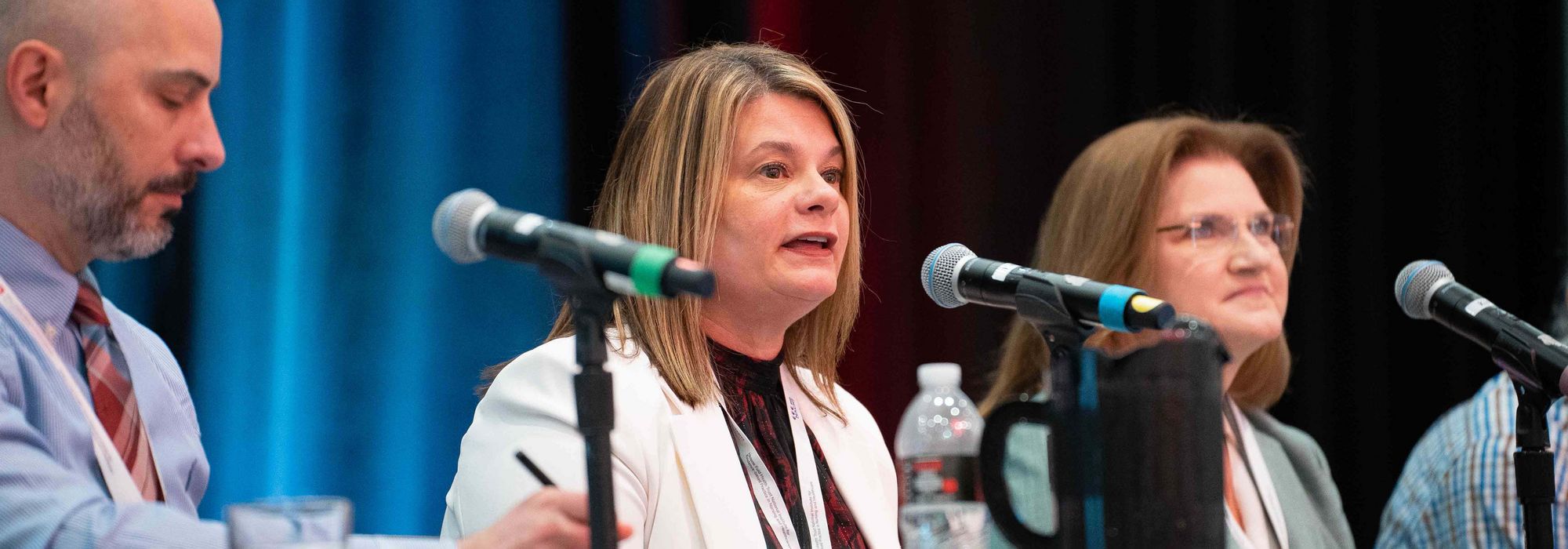
Transforming Healthcare Through Evidence-based Practice National Summit
by Melissa L. Weber
Evidence-based practice took center stage in Columbus at the Transforming Healthcare Through Evidence-based Practice National Summit in May 2023. The summit included a day of preconference workshops followed by two days of keynotes, plenary talks, panel discussions, poster presentations, exhibits and concurrent sessions, two of which were grouped by topic into mini-symposiums. More than 230 healthcare professionals and community members from across the United States, Jamaica and France gathered to learn more about evidence-based practice (EBP) and its positive impact on healthcare quality, patient safety and clinician well-being. They found practical tips, inspiration and camaraderie.
This is the fourth biannual EBP summit hosted by The Helene Fuld Health Trust National Institute for Evidence-based Practice in Nursing and Healthcare.
Saving lives: the science of teamwork
“In the U.S. military, teamwork reduces errors and improves safety,” said plenary speaker Eduardo Salas, PhD. “In healthcare, teamwork improves patient safety, quality of care, patient experience and well-being.” Teamwork also saves lives and reduces errors, Salas pointed out, citing numerous meta-analyses that demonstrated the effectiveness of well-trained teams.
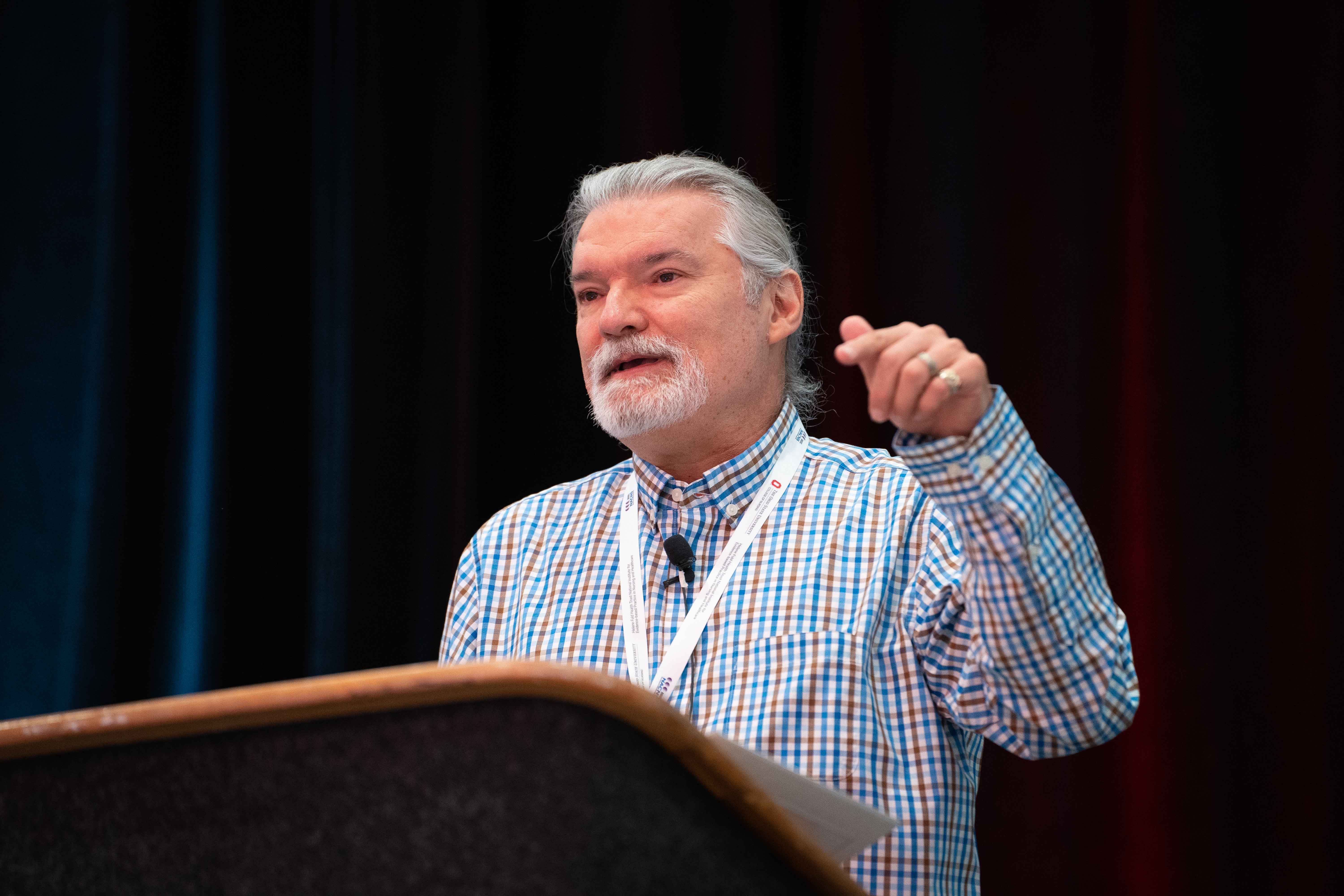
However, anyone who has worked on a team knows that not all teams are effective. Creating a functional team requires competent team members who understand the team’s priorities and a leader who can inspire communication and cooperation.
Panelists in the discussion that followed agreed that the benefits of teamwork in healthcare are easy to understand but potentially difficult to accomplish. “Teams require time and attention,” said one panelist. And in the busy world of healthcare, time is limited and attention is fractured. For a team to succeed, team leaders need to be great coaches who can inspire people to achieve, not just tell them what to do.
Managing in uncertain times
The focus on teamwork shifted to include leadership as panelists discussed how leaders can inspire teams and help nurses recognize their value. The panel presentation, “Using Evidence and Ingenuity to Thrive in Uncertain Times,” urged leaders to use evidence-based strategies and creative solutions to navigate the challenges of the current realities in healthcare. This includes creating a culture of inquiry and encouraging nurses to read and critically appraise current research. “Encourage nurses to read beyond the abstract,” emphasized one of the speakers. The panelists agreed that nursing innovation should be recognized by leaders and celebrated.
Creating and leading an evidence-based enterprise
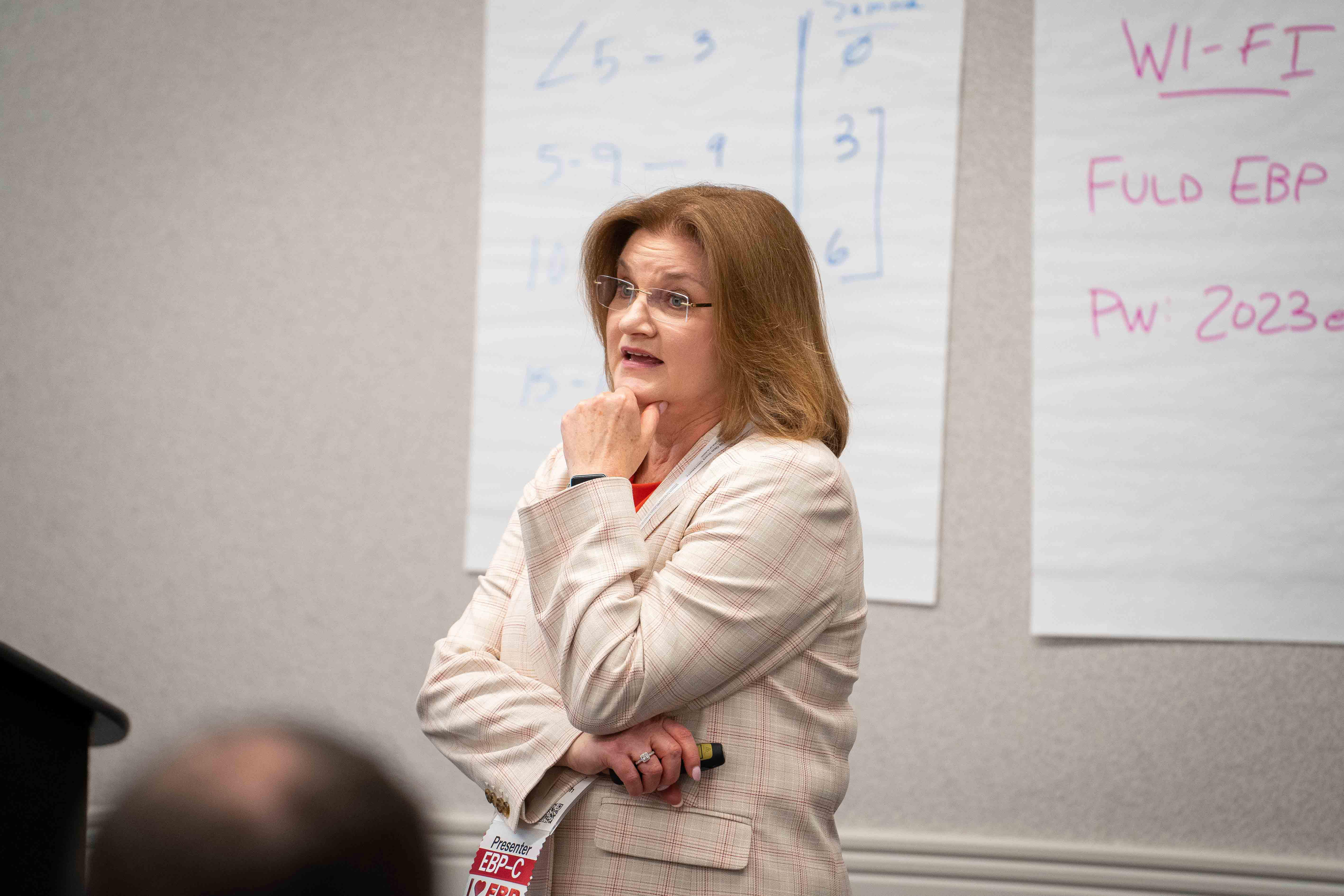
Leadership expert Penelope Gorsuch, DNP, RN, senior vice president and chief nurse executive of Summa Health, continued the discussion about the role leadership plays in EBP in her concurrent session presentation, part of the first symposium on leadership. She offered a model for implementing an EBP culture: develop a vision, create a plan and communicate it. At her institution, she created an EBP council to provide additional support for implementing the cultural shift to EBP.
Assessing the validity of research and clinical practices
Any organization, leader or individual who wants to implement EBP must also learn to assess the validity of research. The presentation, “Systematic Reviews and Clinical Practice Guidelines: Great Tools or Great Scams?” provided valuable tools for evaluations.
 Dónal O’Mathúna, PhD, Cochrane Affiliate program director of the Fuld National Institute for EBP, presented a compelling overview of the need for systematic reviews that provide a summary of multiple studies on the same topic. In the past 60 years, there has been an explosion of medical information, from about 220,000 studies published in 1958 to nearly 2 million published in 2018. Published medical studies often report a new, “miracle” method to advance disease treatment and save lives, O’Mathúna said, but many of these are later found to have faulty data and are withdrawn.
Dónal O’Mathúna, PhD, Cochrane Affiliate program director of the Fuld National Institute for EBP, presented a compelling overview of the need for systematic reviews that provide a summary of multiple studies on the same topic. In the past 60 years, there has been an explosion of medical information, from about 220,000 studies published in 1958 to nearly 2 million published in 2018. Published medical studies often report a new, “miracle” method to advance disease treatment and save lives, O’Mathúna said, but many of these are later found to have faulty data and are withdrawn.
Systematic reviews can help summarize data from multiple studies, but they must also be evaluated for quality before being used in clinical practice. Several organizations such as PRISMA (prisma-statement.org) offer reliable checklists to help clinicians and researchers assess systematic reviews.
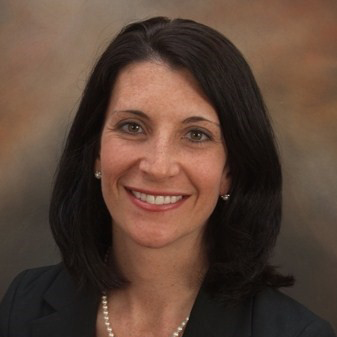 Molly McNett, PhD, RN, assistant director of the Implementation Science Core of the Fuld National Institute for EBP, highlighted resources for evaluating clinical practices. “Clinical Practice Guidelines We Can Trust,” a report from the National Academy of Medicine (NAM), offers eight standards to follow when reviewing clinical practices. She also recommended the Guidelines International Network, or GIN, (g-i-n.net), as well as ECRI (ecri.org) a global, independent authority on healthcare technology and safety.
Molly McNett, PhD, RN, assistant director of the Implementation Science Core of the Fuld National Institute for EBP, highlighted resources for evaluating clinical practices. “Clinical Practice Guidelines We Can Trust,” a report from the National Academy of Medicine (NAM), offers eight standards to follow when reviewing clinical practices. She also recommended the Guidelines International Network, or GIN, (g-i-n.net), as well as ECRI (ecri.org) a global, independent authority on healthcare technology and safety.
Using evidence to promote EBP and clinician well-being
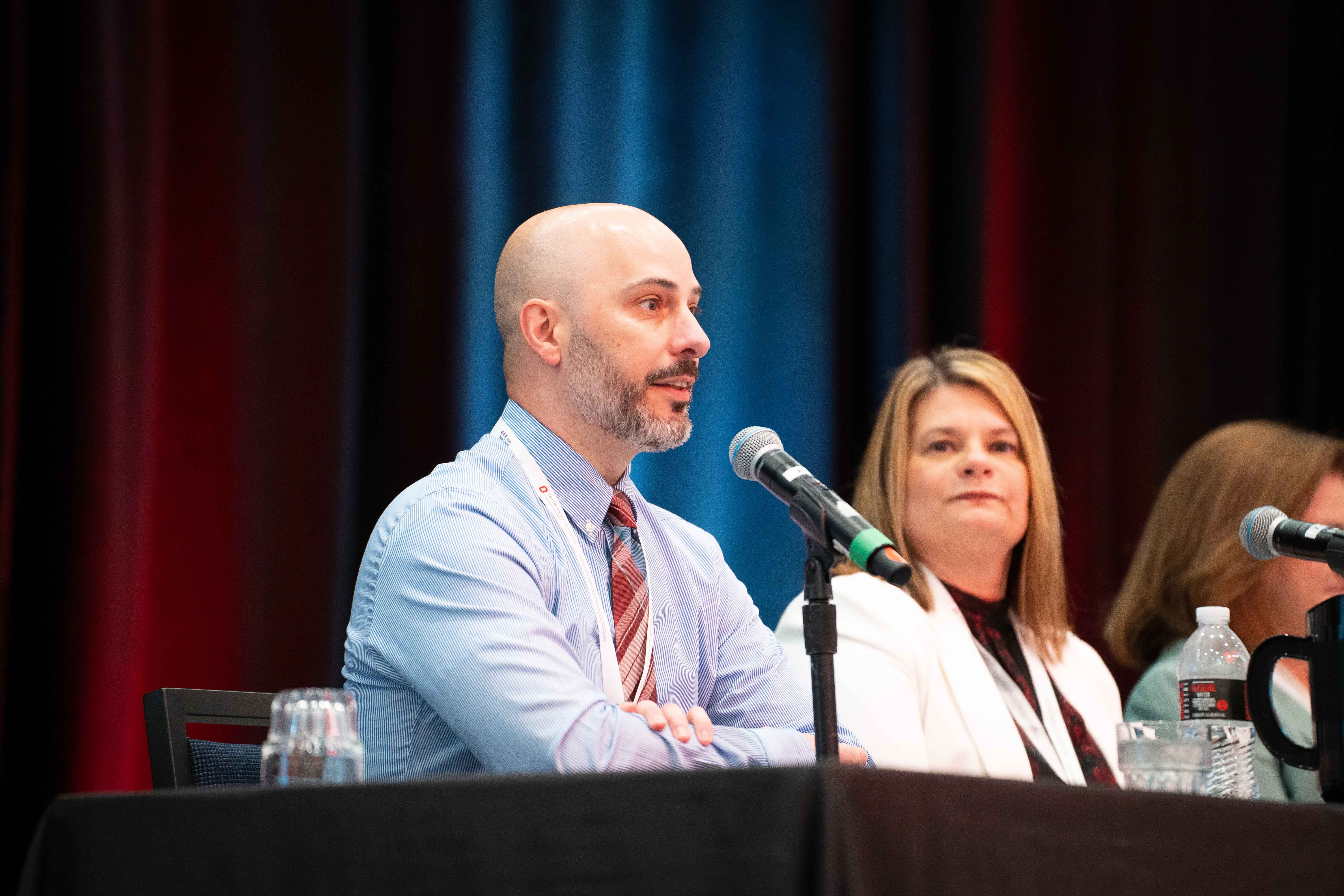
Plenary speaker Bryan Garner, PhD, director of Dissemination and Implementation Research, Center for the Advancement of Team Science, Analytics and Systems Thinking in Health Services and Implementation Science (CATALYST) at Ohio State, is an experimental psychologist. He spoke about his role at CATALYST and using dissemination and implementation science to drive a broader understanding and adoption of EBP.
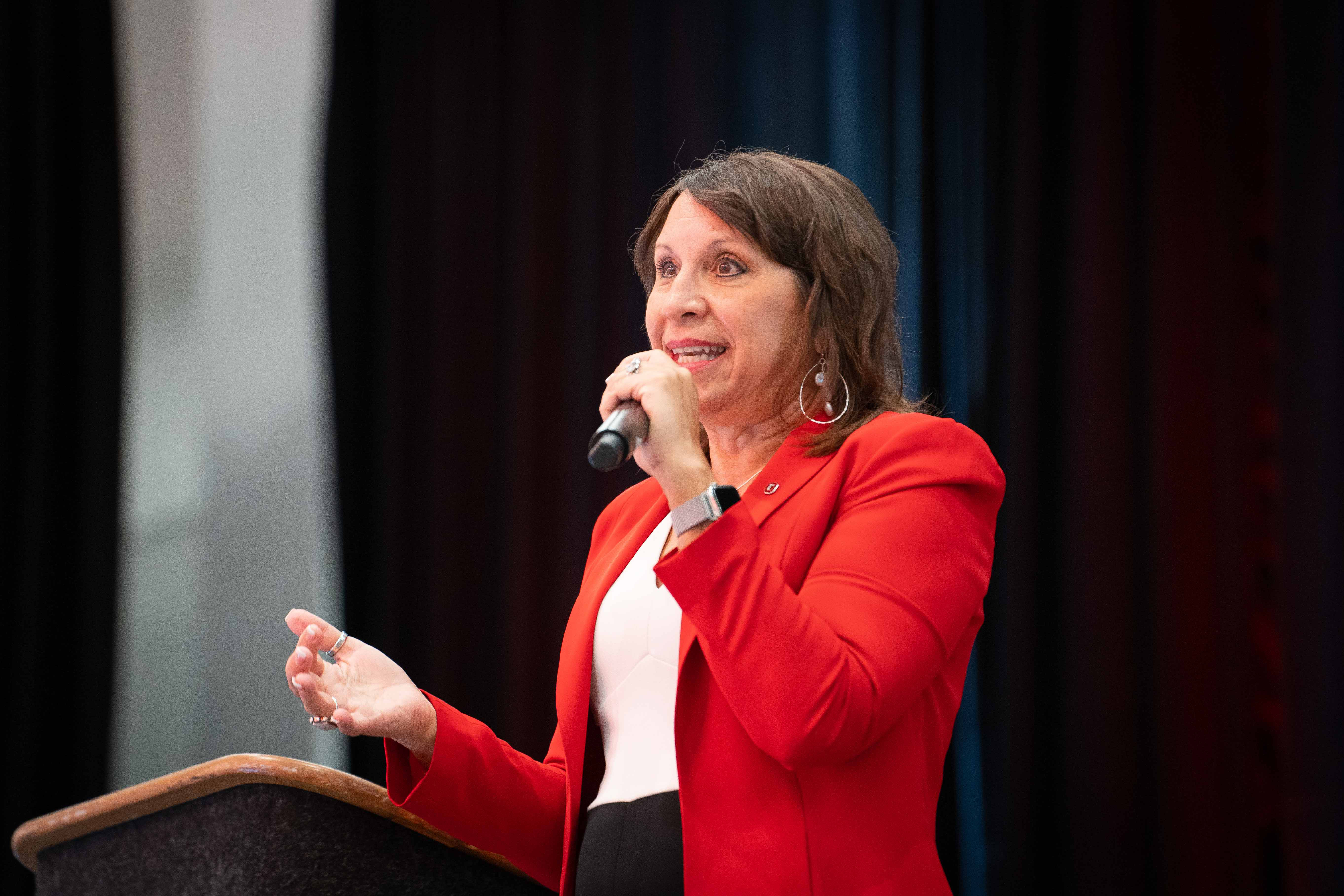
In the endnote presentation, “Making the Business Case for EBP and Clinician Well-being” Bernadette Mazurek Melnyk, PhD, APRN-CNP, FAANP, FNAP, FAAN, founder of the Fuld National Institute for EBP, provided the latest evidence on the return on investment of prioritizing clinician well-being. A recent national study conducted by the Fuld National Institute for EBP team highlighted the finding that chief nurses across the country who invest in EBP have better patient and nurse outcomes.
Sharing best practices
More than 90 concurrent sessions and two symposiums let presenters share their EBP strategies, findings and practical evidence-based solutions to problems they and many healthcare providers have faced in the workplace. In the second symposium, “The Use of Ultrasound-Guided Peripheral IVs in Difficult Intravenous Access,” Jennifer Dean, DNP, RN, presented this situation: some clinics require sticking a patient twice before seeking help with a difficult intravenous access (DIVA) patient. An evidence-based change that leads to better patient outcomes allows clinicians to seek help before sticking a DIVA patient who has no visible veins. Kady Martini, DNP, RN, and Myka Bowen, RN, discussed a program they implemented to provide continuing education for nurses in the use of ultrasound-guided IV placement.
One concurrent session featured DNP postdoctoral Fellows who are being mentored by experts at the Fuld National Institute for EBP. They offered examples of using EBP in their own work. Eva Stone, DNP, offered a school nurse perspective with “Improving Student Outcomes through Implementation of Evidence-based School Nursing Practices.” She sought evidence-based practices to improve student attendance and developed a manual for school nurses. Jayne Dunlap, DNP, discussed evidence-based ways to improve scholarship standards among DNP-prepared faculty. Dawn Mutchko, DNP, presented an innovative, interdisciplinary approach to evaluating and preventing hospital-acquired pressure injuries.
Attendees left with many new contacts, enthusiasm and inspiration to continue to improve the evidence-based culture in their workplace. They gained confidence to invest time and energy in their teams, lead EBP by example and seek evidence-based solutions to improve healthcare outcomes and to take better care of themselves.
In this Issue
- Meet Dean Karen Rose
- Buckeye Nursing Story Slam
- Beth Steinberg and Buckeye Paws
- Buck-I-SERV Goes to Ghana
- A Buckeye Nursing Family
- Grants Roundup
- When Microaggressions Affect LGBTQ Health
- In the Research Realm with Emily Rice
- EBP National Summit
- Shaunta Stanford and the Community Health Workers
- Joy and Milestones
- Alumni in Action: Chris Connors
Community Core helps patients understand use of evidence to promote best health
The Community Core’s special preconference session helped patients and families learn evidence-based strategies to promote their best health. The Community Core of the Fuld National Institute for EBP is dedicated to promoting trustworthy health information for patients. Attendees learned why health literacy matters and how to make the most of healthcare visits. They were introduced to the role of community health workers. Activities illustrated barriers to understanding health information such as language differences and presented ways to increase mental resilience while working toward achieving better health.
Awards
Gold designation for Excellence in Evidence-based Practice and Outcomes in Healthcare
The Ohio State University Comprehensive Cancer Center – Arthur G. James Cancer Hospital and Richard J. Solove Research Institute received the gold-level Excellence in Evidence-based Practice and Outcomes in Healthcare Designation from the Fuld National Institute for EBP. The designation recognizes hospitals and healthcare systems that have created outstanding transdisciplinary EBP outcomes. In 2021, Memorial Sloan Kettering Cancer Center in New York received the first gold-level designation.
Bern Melnyk Award for Vision in Evidence-based Practice
The winner of the inaugural Bern Melnyk Award for Vision in Evidence-based Practice is Lynn Gallagher-Ford, PhD, RN, chief operating officer and clinical core director of the Fuld National Institute for EBP.
The award was created this year to acknowledge and celebrate all Melnyk has done and continues to do for the institute and to inspire the use of evidence-based practice in healthcare around the world. Recipients of the award must embody a list of qualities that characterize Melnyk’s work in EBP: offering vision, dreaming big, mentoring, collaborating, thinking strategically, inspiring others and persisting.
